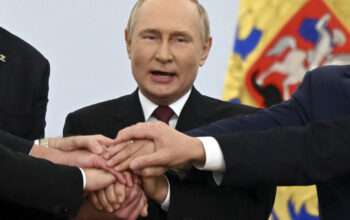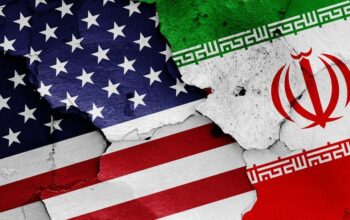Rep. Mike Turner, Chairman of the House Intelligence Committee, has issued a warning regarding what he describes as a “serious national security threat.” This announcement has prompted briefings for members of Congress, shedding light on a situation that could have far-reaching implications.
According to sources familiar with the matter, the core of the concern lies in Russia’s recent actions, which suggest the deployment or intention to deploy an anti-satellite nuclear weapons system. This information corroborates earlier reports by CNN indicating that the threat is Russia-related. Recent satellite launches by Russia, including one last week, are believed to be tied to military activities, amplifying the urgency of the situation.
Experts suggest that Russia is working on enhancing its anti-satellite weapons capabilities, aiming to compromise or entirely destroy U.S. and allied satellite networks. The consequences of a nuclear explosion in space would be catastrophic, potentially disrupting vital satellite constellations through radiation fallout. Lt. Col. Robert Vincent, shedding light on the science behind such an attack in 2022, stated, “Most satellites within view of the detonation could be obliterated by the resulting x-rays, severely impacting military and economic satellite functions.”
Further investigations reveal discussions among Russian physicists about a space-based nuclear system capable of generating a plasma wave to target objects in space. This aligns with Russia’s openly acknowledged ambition to incapacitate enemy command and control, communication, and weapons targeting systems through satellite destruction.
President Vladimir Putin has notably focused on advancing Russia’s strategic weapons capabilities, a move supported by increased oversight of scientists by the Russian FSB domestic security service. This strategic emphasis underscores Russia’s vested interest in space-based nuclear weapons systems, reminiscent of the Soviet Union’s “Fractional Orbit Bombardment System”, which was designed for surprise nuclear attacks.
The deployment of nuclear weapons in space, however, would breach the 1967 Outer Space Treaty, an agreement both the United States and Russia are bound by. Such a move could exacerbate the already tense relations between the two nations.
This development plays into a larger strategy of pre-emptive strikes that define Russian military planning, targeting an adversary’s leadership and critical infrastructure. The reliance of U.S. nuclear command and control on satellites makes addressing this new threat a priority for the Biden administration, which now faces the challenge of formulating an appropriate response. Options on the table include sanctions against Russia, deploying countermeasures in space, or potentially targeting the Russian weapons directly.

















